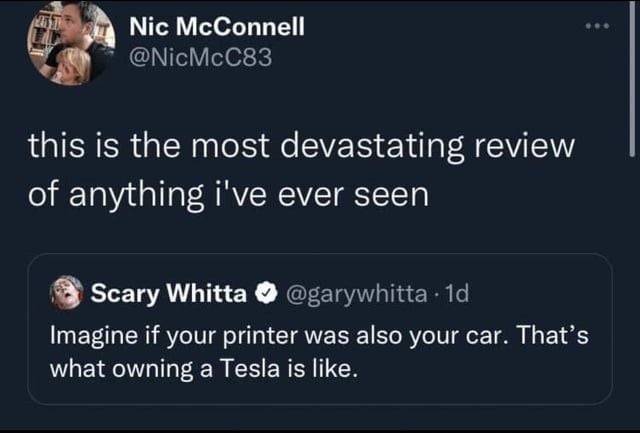this post was submitted on 18 Apr 2024
1596 points (98.2% liked)
People Twitter
5230 readers
506 users here now
People tweeting stuff. We allow tweets from anyone.
RULES:
- Mark NSFW content.
- No doxxing people.
- Must be a tweet or similar
- No bullying or international politcs
- Be excellent to each other.
founded 1 year ago
MODERATORS
you are viewing a single comment's thread
view the rest of the comments
view the rest of the comments

Exactly. Until the battery can be worked on (i.e. the most expensive part) with full documentation and support from Tesla, then I'm not going to consider it. I can replace the engine and any part of the drive train that I want on pretty much any ICE car.
I understand that there are safety issues here, but without documentation, users are left with reverse engineering, which is even more dangerous. Tesla's stance so far is, "if there's damage, replace it," which is just another way of saying "planned obsolescence" since replacement of a battery pack is ~3/4 of the price of the car.
Then there's the BS all car manufacturers are seeming to do these days in tracking users and keeping things locked away from user control (e.g. disabling data collection). It's getting increasingly difficult to find a reasonably privacy-respecting vehicle, and EVs are the worst offenders here.
If an EV comes along with:
I'll probably get it. I'm especially interested in sodium-ion EVs since they should be far less expensive and probably safer. I don't need anything fancy, I just need to get to work, and I'd really prefer to do that without being tracked by the car manufacturer.